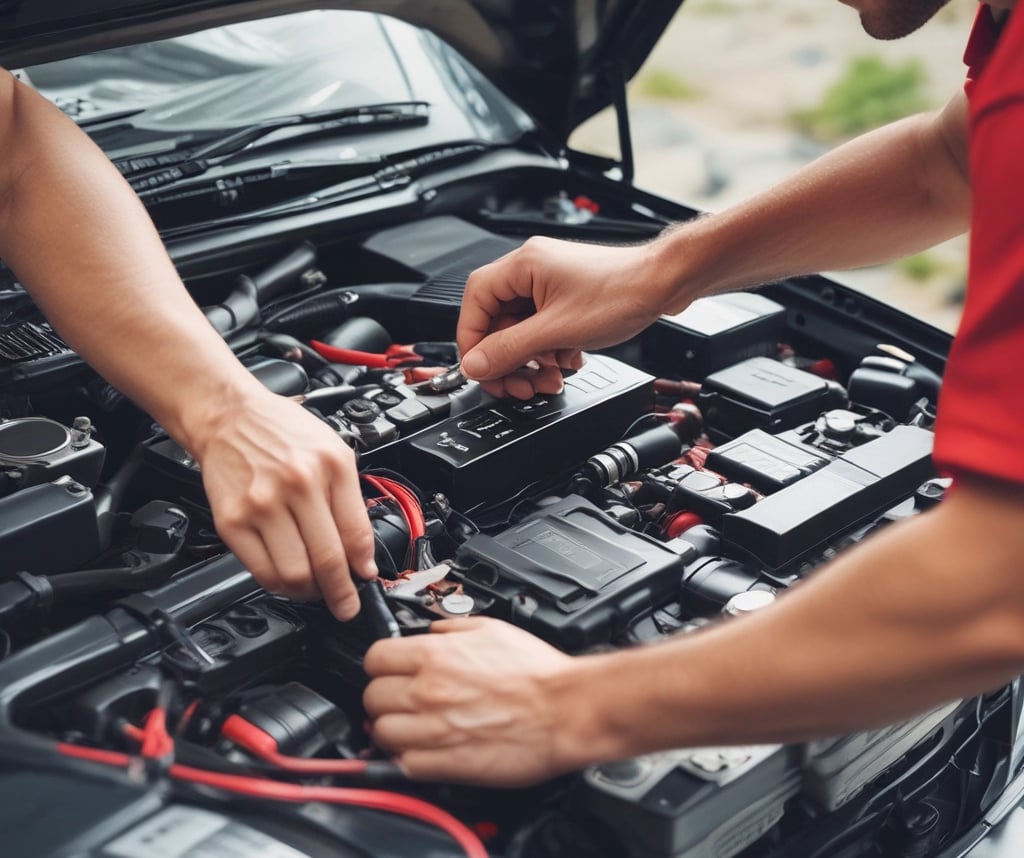Mastering Car Battery Maintenance: A Step-by-Step Guide
11/10/20252 min read


Understanding the Importance of Car Battery Maintenance
Maintaining your vehicle's battery is essential for ensuring optimal performance and longevity. A well-maintained car battery can prevent unexpected breakdowns and save you money in the long run. By mastering car battery maintenance, you can enhance the lifespan of your battery and minimize the need for replacements.
Basic Steps for Battery Maintenance
To begin with, regular checks of your car battery should be incorporated into your vehicle maintenance routine. This includes inspecting the battery terminals for corrosion, which can hinder the functioning of the battery. If you notice any corrosion, use a mixture of baking soda and water to clean the terminals.
Additionally, monitoring the battery's fluid level is crucial, especially for traditional lead-acid batteries. If the fluid is low, distilled water can be added to restore the level. Keeping the battery clean and properly filled with fluid ensures optimal performance and reduces the risk of electrical failures.
Advanced Maintenance Techniques
In addition to basic maintenance, utilizing a battery maintainer can significantly prolong your battery's life. A maintainer keeps your battery charged during long periods of inactivity, preventing sulfation that can occur when a battery is not used regularly. If your vehicle is not frequently driven, consider investing in a quality maintainer.
Another aspect of mastering car battery maintenance is checking the battery's charge voltage. This can be easily accomplished with a multimeter. A fully charged battery should register around 12.6 volts or higher. If your voltage reads between 12.4 to 12.6 volts, it is moderately charged but may need recharging soon. Anything below 12.4 volts indicates a need for immediate recharging to prevent damage.
Finally, keep in mind that the average lifespan of a car battery is typically between three to five years. To ensure you're not caught off guard by a dying battery, regularly have your battery tested by a professional. They can give you insights into its health and performance, helping you determine the best time for replacement.
In conclusion, mastering car battery maintenance involves a combination of routine checks, cleaning, fluid management, and utilizing the right tools to maintain and monitor the battery's health. By following these steps, you can significantly improve the reliability and lifespan of your car battery, keeping your vehicle running smoothly.
